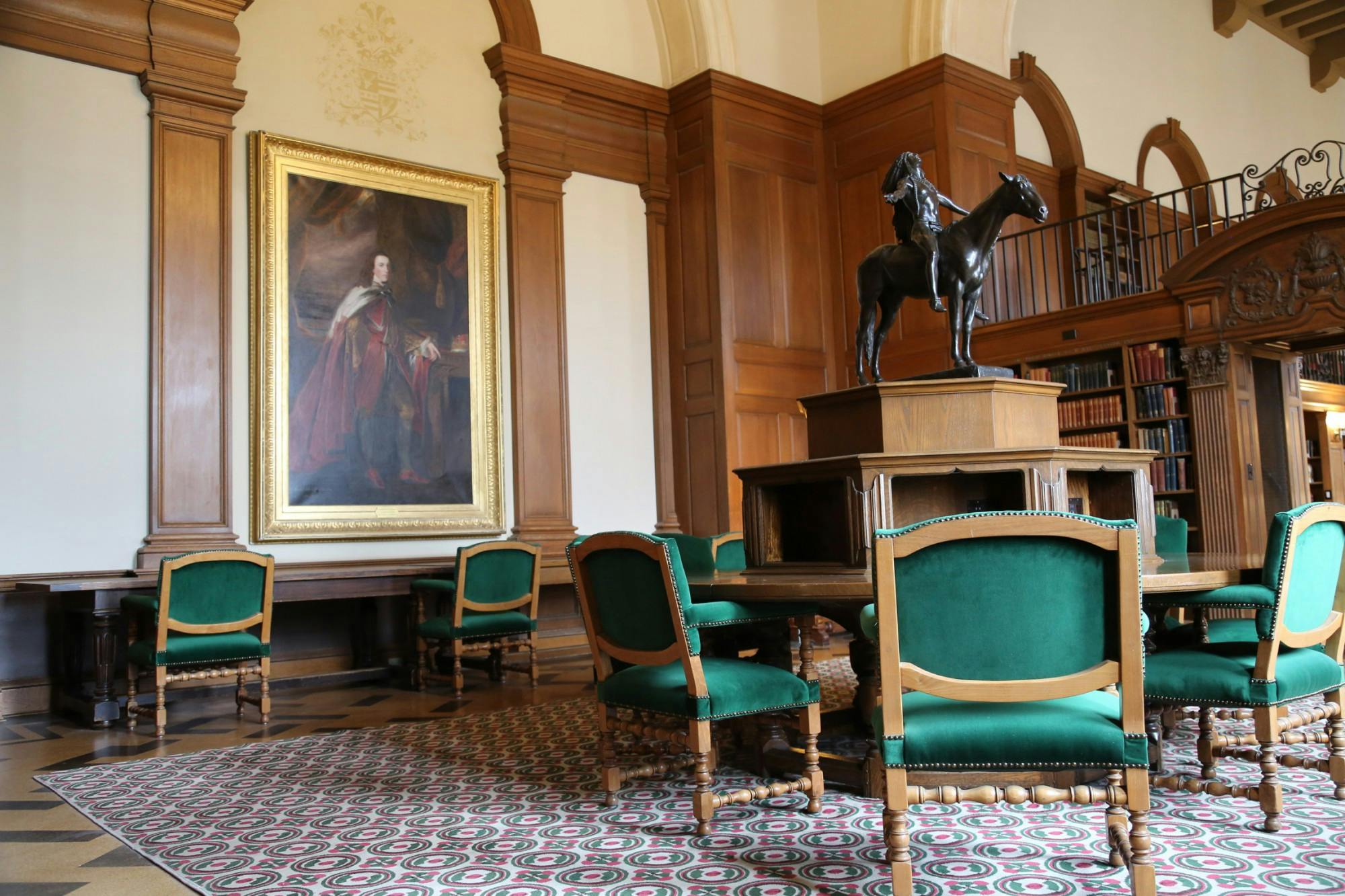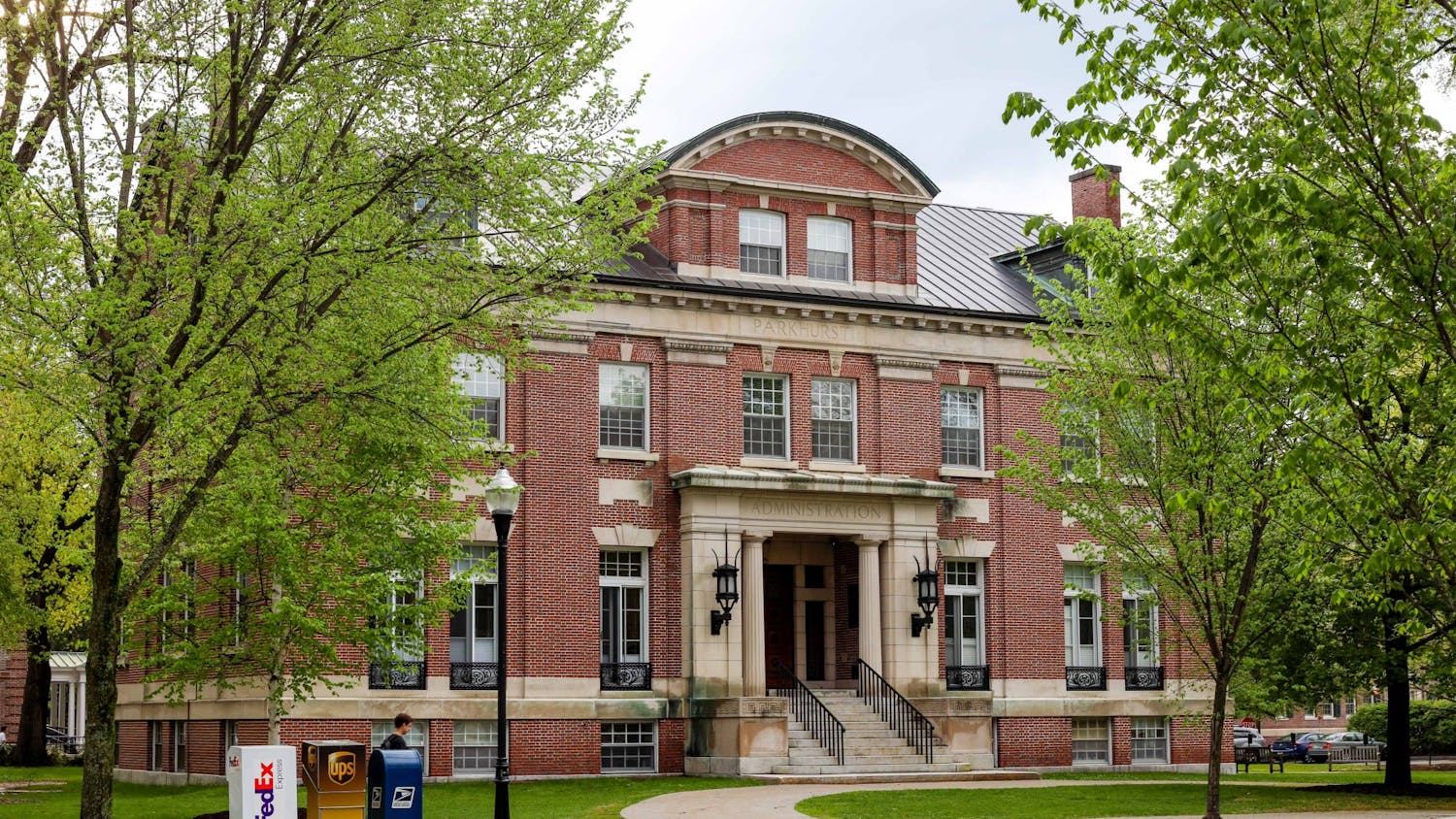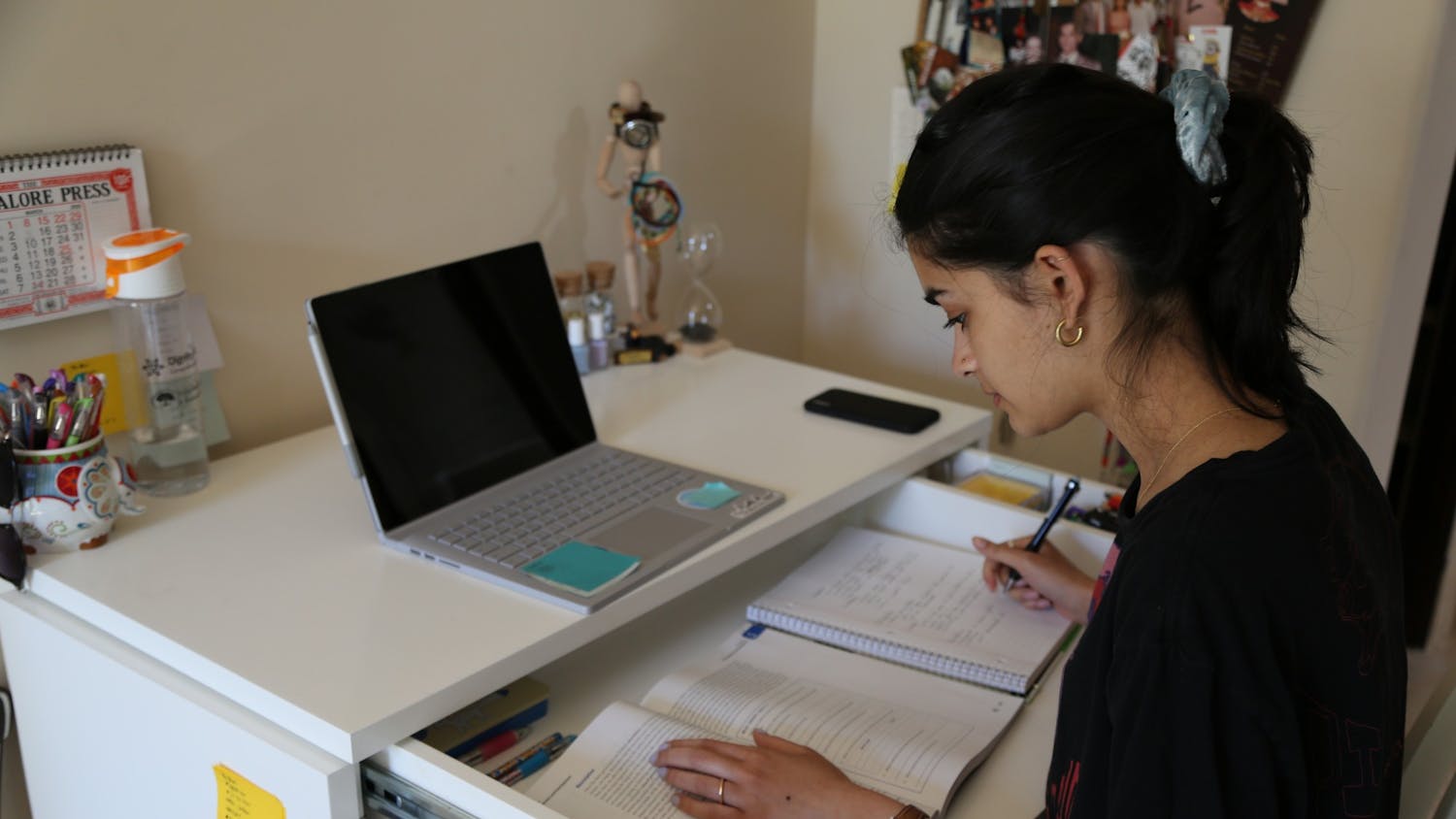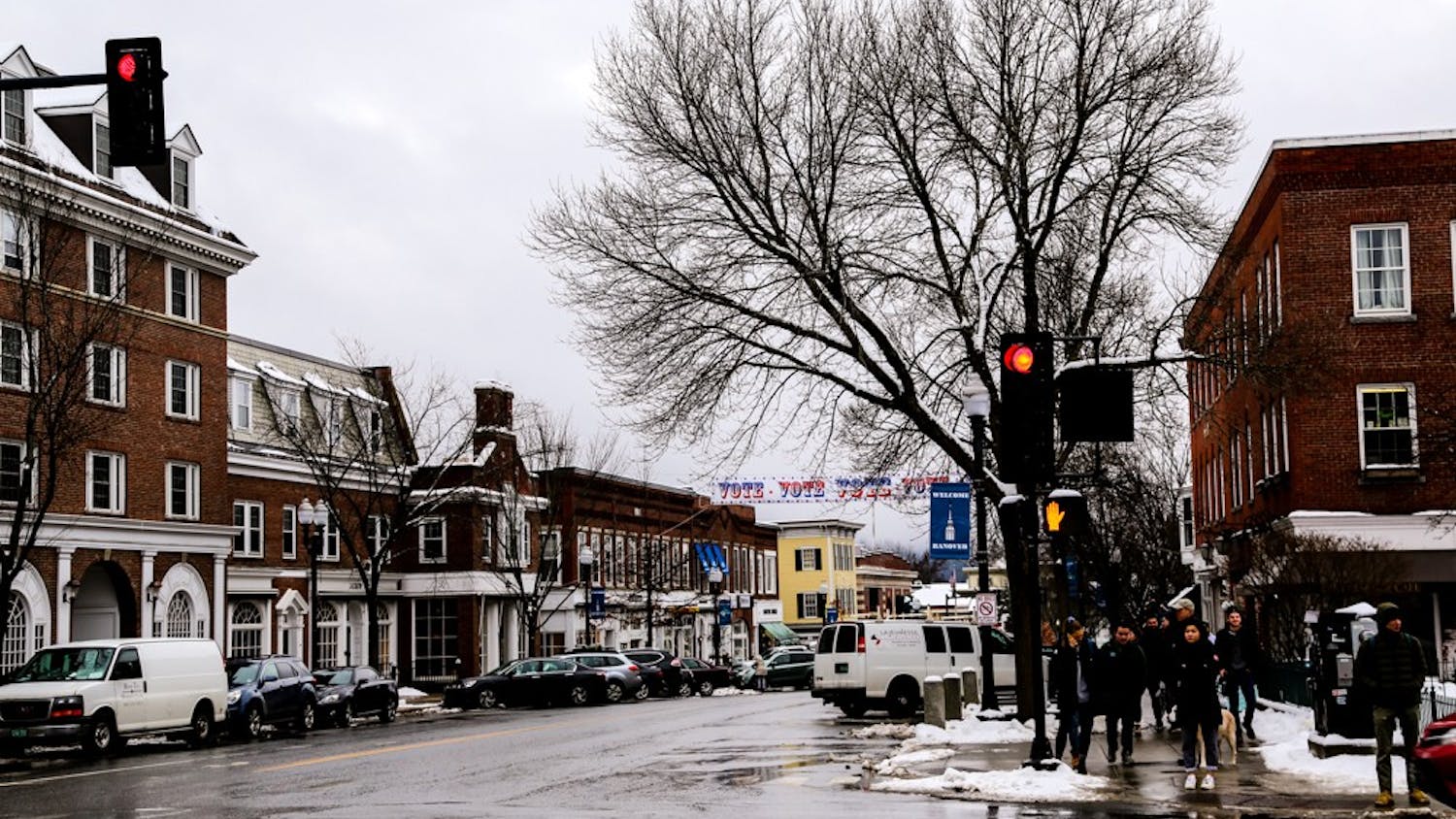Updated: April 3, 2020 at 8:54 a.m.
Though many Dartmouth students will spend the spring term scattered across the world, 184 students remain on campus, according to an email statement from associate dean of residential life Michael Wooten. As campus facilities are mostly closed, these students are living solitary lives on Dartmouth’s usually bustling campus.
As of Thursday afternoon, most students have been allowed to stay in their own dorms, except eight students living in self-quarantine in the Maxwell and Channing Cox apartments and six students in self-isolation in the Lodge — three of whom have tested presumptive positive for COVID-19, College health service director Mark Reed said.
Social distancing guidelines provide few opportunities for students to see their friends, and most of Dartmouth’s most popular spots — Baker-Berry Library, House Center B and the Collis Center, as well as all academic buildings — are closed to students.
Given the limited number of places to go on campus, Ivana Devic ’22 voiced concern that having “sleeping space and workspace in one room … won’t be healthy and productive,” but said she had “no choice,” and would have to learn to adjust.
Devic said that since social distancing does not forbid students from going outside, she has turned to outdoor activities like going for runs, which she said has benefited her mental health.
“You can play soccer if you’re 10 feet apart and don’t touch anything with your hands,” she said.
Students on campus have access only to their own residence halls and have been warned by the College to practice social distancing by not letting anyone who is not authorized into their dorms.
The Class of 1953 Commons is open for students to pick up their meals. They can pre-order their meals on the GET app or swipe into the dining hall and choose their own food, according to an email to on-campus students from Dean of the College Kathryn Lively. ’53 Commons employees have received updated training to enforce social distancing rules, and only 10 students are allowed in the dining hall at a time.
In an email to on-campus residents, Lively wrote, “if you choose not to [follow social distancing guidelines], you run the risk of being asked to leave.”
Reed noted that students are most likely to contract COVID-19 from the people with whom they spend the most time, especially their close friends.
Devic, as well as Pumho Karimi ’22 and Ayazhan Abdiken ’22, all said that they have been adhering to College social distancing guidelines — watching TV shows, playing video games and reading in their rooms.
Though most students have vacated campus, many of those who remain do so as a result of extenuating circumstances related to travel or their home living situations.
Devic, for example, said that she chose to remain on campus for the term because she “simply had nowhere else to go,” given that traveling to her home country of Bosnia-Herzegovina would be “extremely difficult logistically” because of visa and health concerns. She also said that her family would not be able to support her financially if she returned home and added that she would have had to take care of her grandparents.
Devic said that she felt “safest on campus,” where she had access to health care, food and reliable internet and electricity. She added that she was advised by Dick’s House not to travel due to her compromised immune system.
Karimi, a student from Kenya, also cited the need to access Dartmouth’s resources, like the internet and library books, as a reason for staying on campus. Meanwhile Abdiken, who hails from Kazakhstan, decided that it was unsafe to fly home for the term.
For students like Abdiken, Devic and Karimi, resources on campus remain available.
The health service’s primary care office, infirmary, pharmacy and counseling are some of the health resources available for students. Reed said that health service staff offer primarily telemedicine and telehealth services, since half of their staff have been working remotely.
The College has also provided resources in the form of “deans, physicians, and counselors on call” to aid students’ academic and personal struggles, according to the email statement from Wooten.
Dean and chaplain of the Tucker Center Rabbi Daveen Litwin mentioned Tucker’s transition to providing virtual resources and counseling for students.
Given that more students are taking four courses during spring term, Litwin emphasized creating a “space so that they are not just studying all the time.”
Litwin said that students would likely need support during religious holidays like Ramadan, Passover and Lent, especially if they are far from home.
Devic added that fielding emails from College administrators about financial aid, taxes and other concerns has been “tiring.”
“At this point, I’m so used to bugging administrators with a bunch of emails,” she said, but added that she has tried to have compassion and understanding for the institution’s workers during these uncertain times.
Karimi also expressed disappointment at the cancellation of most campus jobs and research opportunities, stating that it had been one reason he had wanted to stay on campus for the term.




